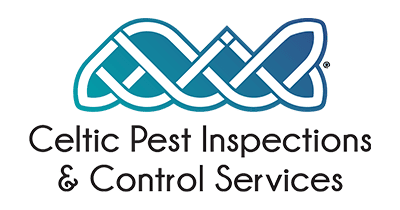Understanding the Role of Pest Control in Commercial Leases
A pest control clause might seem like a small detail, but it carries big importance in a commercial lease. For landlords and tenants in Reno, defining who manages pest prevention ensures smoother operations, healthier environments, and fewer legal complications.
What Is a Pest Control Clause?
A pest control clause outlines which party landlord or tenant is responsible for pest prevention, inspections, and treatments. It also defines how often services should occur and who bears the costs. Clear terms prevent confusion when pest issues arise, creating accountability for both sides.
Common Pest Control Issues in Commercial Properties
Reno’s climate allows pests to thrive indoors throughout the year. Commercial buildings often attract unwanted visitors due to food, moisture, and warmth. Common pests include:
- Rodents nesting in storage or ceiling spaces
- Cockroaches contaminating kitchens and break rooms
- Ants entering through cracks and electrical outlets
- Spiders seeking shelter in dark corners
- Silverfish damaging files and paper materials
A clear pest control clause helps address these problems quickly and professionally.
Why Pest Control Clauses Protect Both Landlords and Tenants
A pest control clause benefits both parties by defining responsibility and ensuring compliance. It protects property owners from liability while keeping tenants’ spaces sanitary and operational.
Legal and Liability Considerations
Without written pest control responsibilities, disputes can escalate. Pest control liability often becomes a grey area when infestations spread. Reno’s local and state health codes expect property managers to maintain pest-free conditions.
Health code pest clauses also require compliance with sanitation laws in food, retail, and office spaces. Having a formal clause in your lease reduces risk and ensures both sides meet regulatory standards.
Financial Impact of Ignoring Pest Clauses
Infestations can cause significant financial loss if no clause exists. Costs often include:
- Repairs to damaged walls or wiring
- Product or inventory contamination
- Loss of rental income from vacated spaces
- Fines from health department inspections
Preventive commercial pest control service plans cost far less than emergency remediation or reputational damage. A solid pest control clause saves time, money, and stress.
How Pest Control Clauses Ensure Health Code Compliance
Health and sanitation laws in Reno require that commercial facilities remain pest-free. A pest control clause demonstrates compliance with these codes and protects businesses from fines or forced closures.
The Connection Between Pest Control and Public Health
Pests pose health hazards that affect employees, customers, and suppliers. Rodents can carry bacteria like salmonella, and cockroaches can spread allergens. Commercial pest control services help maintain air quality, cleanliness, and compliance with state health mandates.
Avoiding Health Violations and Business Interruptions
Ignoring pest control duties can result in inspection failures or even shutdowns. Routine inspections and service visits prevent issues before they become violations. Preventive plans ensure business continuity and consistent adherence to health regulations.
Drafting a Strong Pest Control Clause in Your Lease
Whether you’re a landlord drafting a lease or a tenant reviewing one, pest control responsibilities must be explicit. Clear terms prevent disagreements later and ensure ongoing pest prevention.
What Every Pest Control Clause Should Include
A well-written pest clause covers these key elements:
- The frequency of commercial pest control service visits
- The type of pests included under the agreement
- Each party’s financial responsibilities
- Procedures for reporting and responding to infestations
- Required certifications or licensed providers
These details make pest prevention a proactive, structured part of property management.
Negotiating Fair Terms Between Landlord and Tenant
Fairness in pest control clauses keeps relationships strong. Typically, landlords maintain building exteriors and shared areas, while tenants handle interior hygiene. Both parties should collaborate on quarterly pest services and inspections. Written agreements protect everyone from surprise expenses and disputes.
Importance of a Professional Commercial Pest Control Service
Relying on a licensed pest control company ensures legal compliance and effective prevention. Our commercial pest control service provides consistent monitoring, documentation, and expertise that DIY solutions cannot match.
Why Businesses Need a Long-Term Pest Management Partner
One-time treatments rarely solve long-term issues. A professional provider delivers recurring inspections, sealing entry points, and ongoing maintenance. Preventive service saves money and preserves the property’s integrity over time.
How Commercial Pest Control Services Protect Property Value
Regular pest management preserves structural soundness and aesthetics. Rodent infestations can damage wiring, insulation, and furniture. Preventive service plans ensure tenants remain satisfied, and properties retain their value.
Keep Your Building Pest-Free with Celtic Pest Control
At Celtic Pest Control, we help Reno’s property owners and business tenants protect their spaces through reliable, customized pest management. Our commercial pest control service ensures compliance with lease terms and health codes while safeguarding buildings from costly infestations.
We understand the importance of clear pest control responsibilities in commercial leases. Our quarterly inspection programs identify vulnerabilities early, apply eco-friendly treatments, and maintain documentation for compliance audits. Whether you manage one office or multiple facilities, we deliver lasting solutions designed around your lease needs.
If pests appear in your business, we have the experience and equipment to solve the problem quickly and keep your property protected year-round. Contact Celtic Pest Control today to schedule a professional inspection and maintain a pest-free environment.
Building a Pest-Responsible Culture in Commercial Properties
Even with the best lease clause, success depends on shared responsibility. Both landlords and tenants must play active roles in maintaining pest-free facilities.
Tenant Responsibilities Under Pest Control Clauses
Tenants can reduce pest risks by following good sanitation practices and cooperating with scheduled services. Effective habits include:
- Keeping kitchens and break rooms clean
- Reporting pest sightings immediately
- Storing waste in sealed containers
- Allowing technician access for regular treatments
- Avoiding clutter in storage or utility areas
Tenant cooperation makes professional pest management more effective and prevents infestations from recurring.
Landlord Responsibilities for Facility Maintenance
Landlords are typically responsible for the building’s structural integrity and shared areas. Proper maintenance reduces entry points and nesting spots for pests. Key duties include:
- Sealing cracks, windows, and door gaps
- Maintaining exterior landscaping and drainage
- Scheduling routine exterior pest treatments
- Ensuring waste collection areas remain sanitary
- Coordinating with tenants on quarterly pest control visits
A collaborative approach between both parties ensures lasting pest prevention and operational peace of mind.
Frequently Asked Questions (FAQs)
1. Why is pest control important for restaurants and food businesses?
Pest control is vital for restaurants because it prevents contamination of food and equipment. Regular treatments help maintain hygiene standards, protect brand reputation, and ensure compliance with local health codes that mandate pest-free food preparation areas.
2. How does pest control improve safety in warehouses and storage facilities?
In warehouses, pests like rodents and insects can damage packaging, wiring, and stored goods. Professional pest control reduces contamination risks, prevents costly product loss, and ensures a safer environment for workers handling stored materials.
3. What are the financial benefits of regular commercial pest control?
Preventive pest control saves money by avoiding major infestations that require expensive repairs or fumigation. Businesses with regular service plans experience fewer shutdowns, less product waste, and lower maintenance costs over time.
4. How does pest control help businesses meet health and safety regulations?
Many industries, including food service and logistics, must comply with health codes and sanitation standards. Scheduled pest inspections help demonstrate compliance, prevent penalties, and ensure continued operation without interruptions from health authorities.
5. Can pest control improve employee comfort and productivity?
Yes, a pest-free workspace creates a cleaner, safer, and more comfortable environment. Employees work better when they’re not distracted or concerned about insects or rodents, leading to improved morale and productivity.

